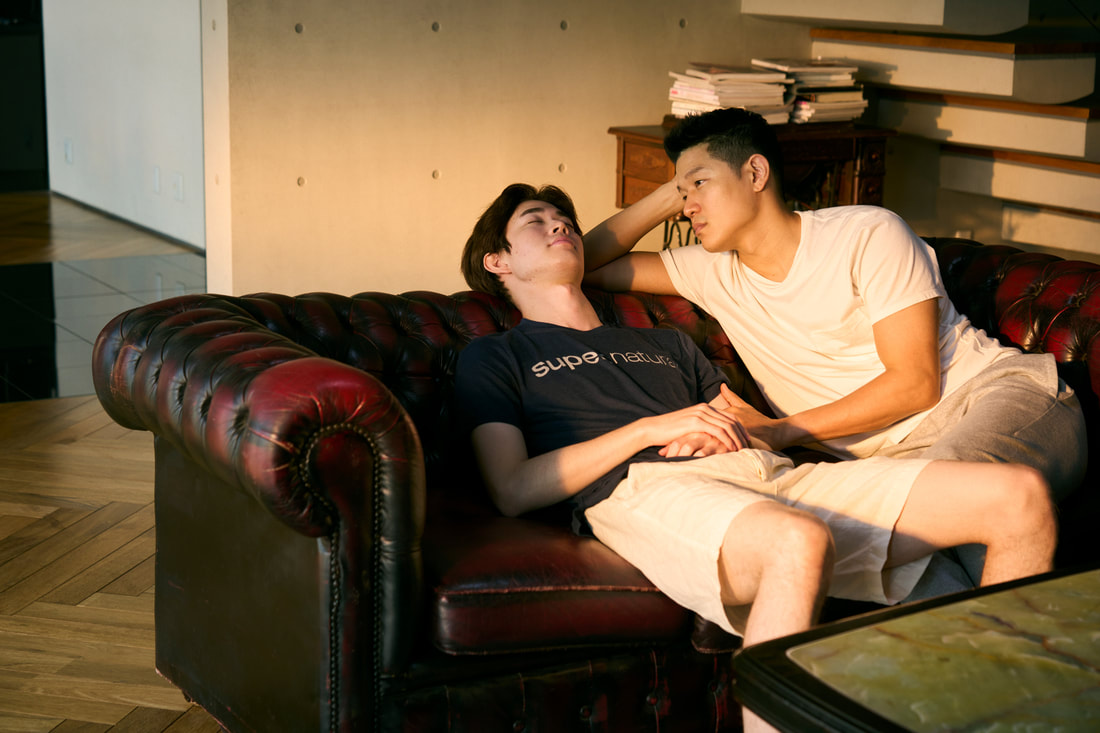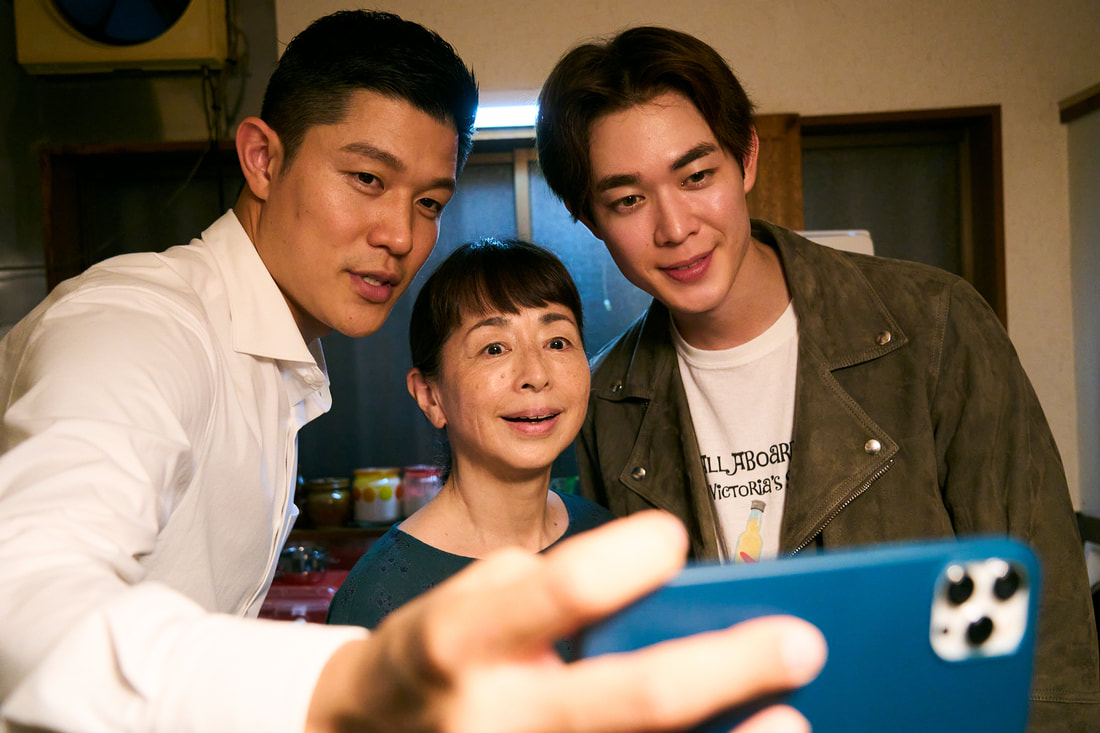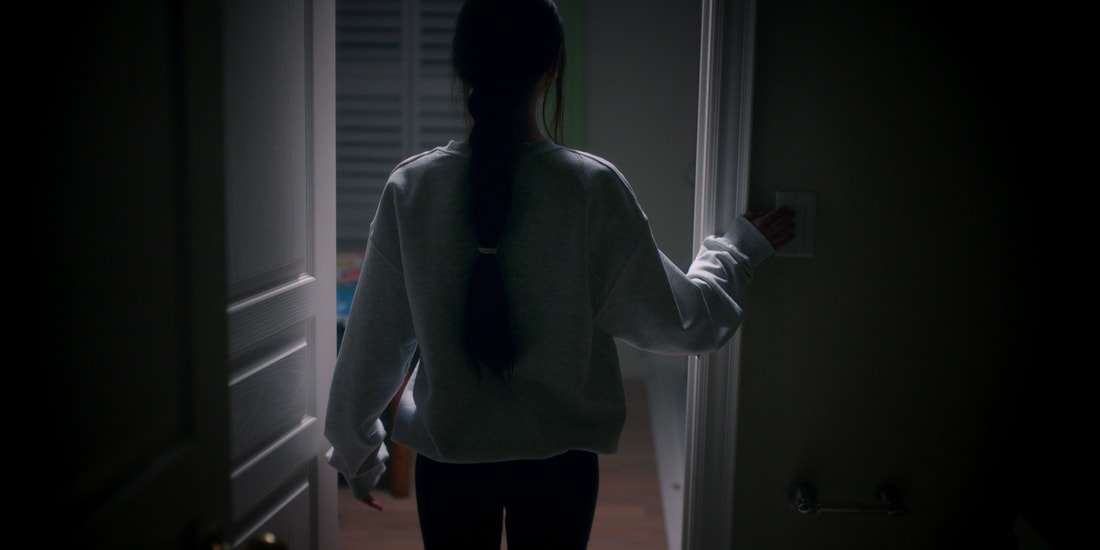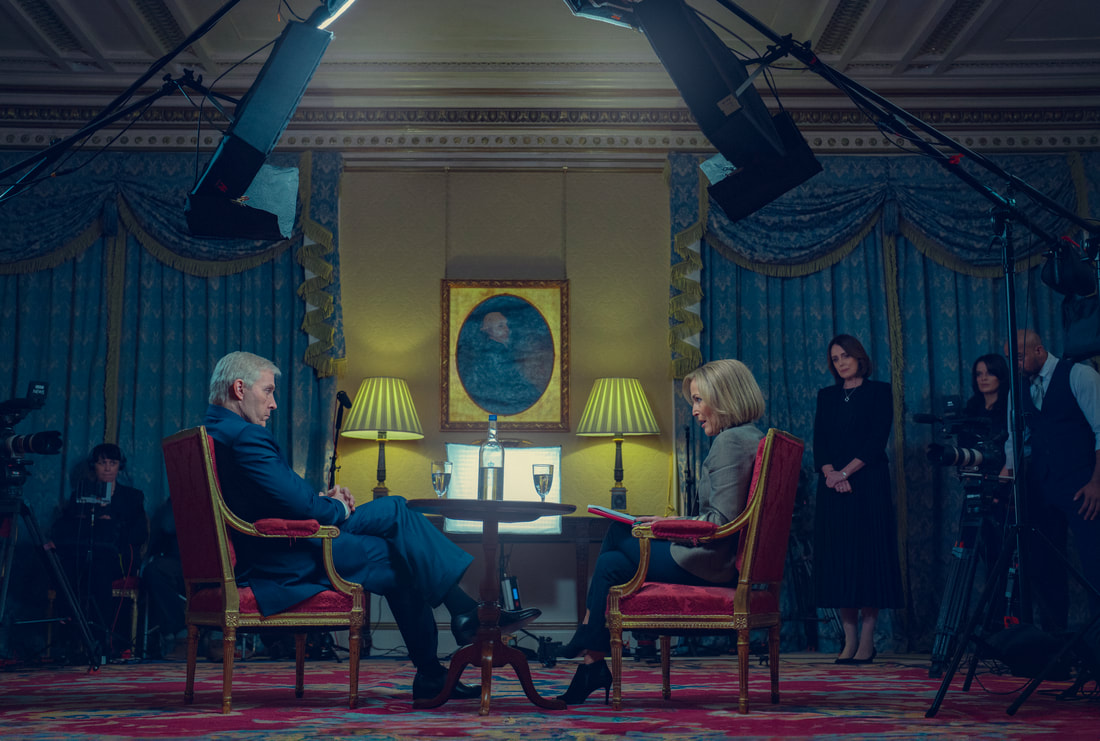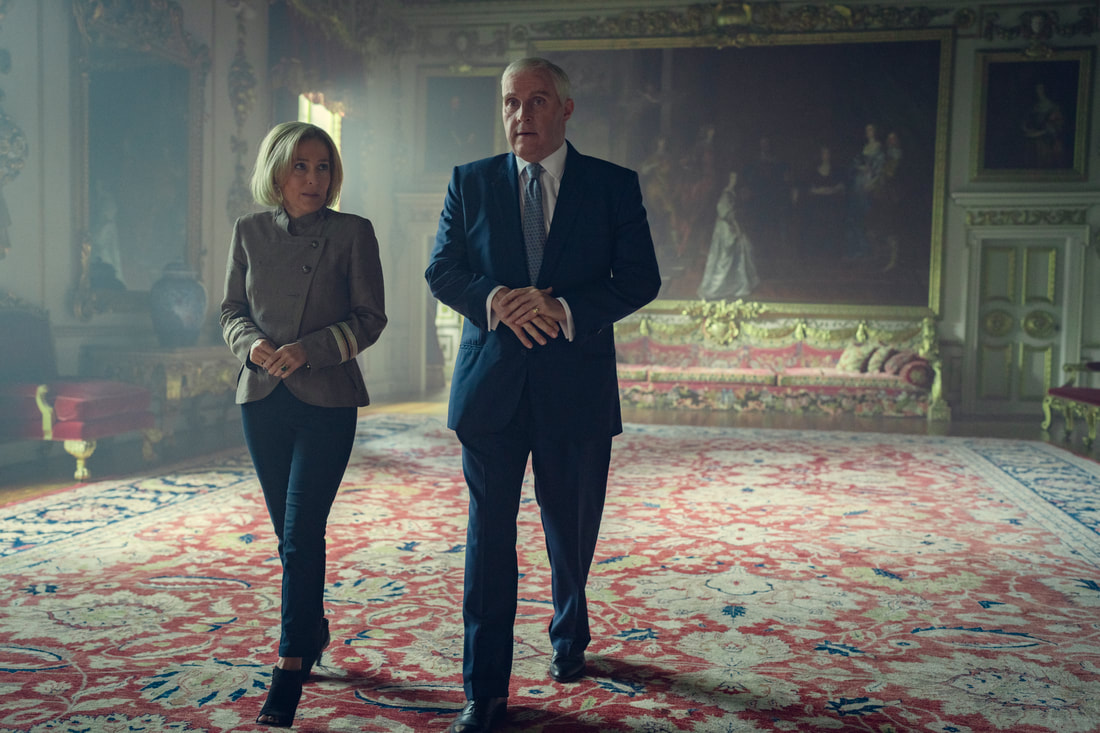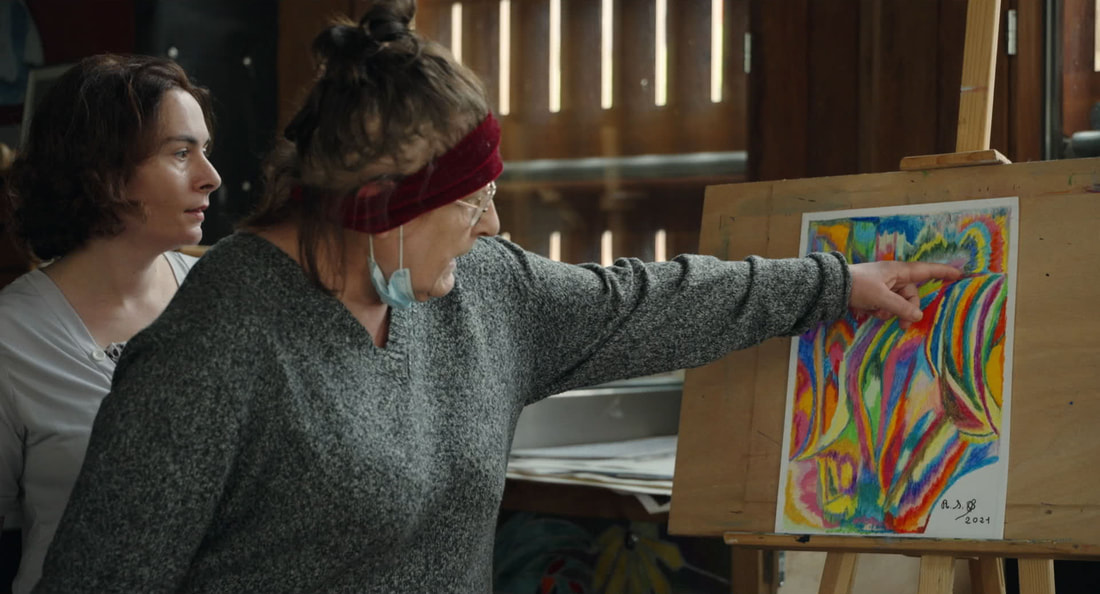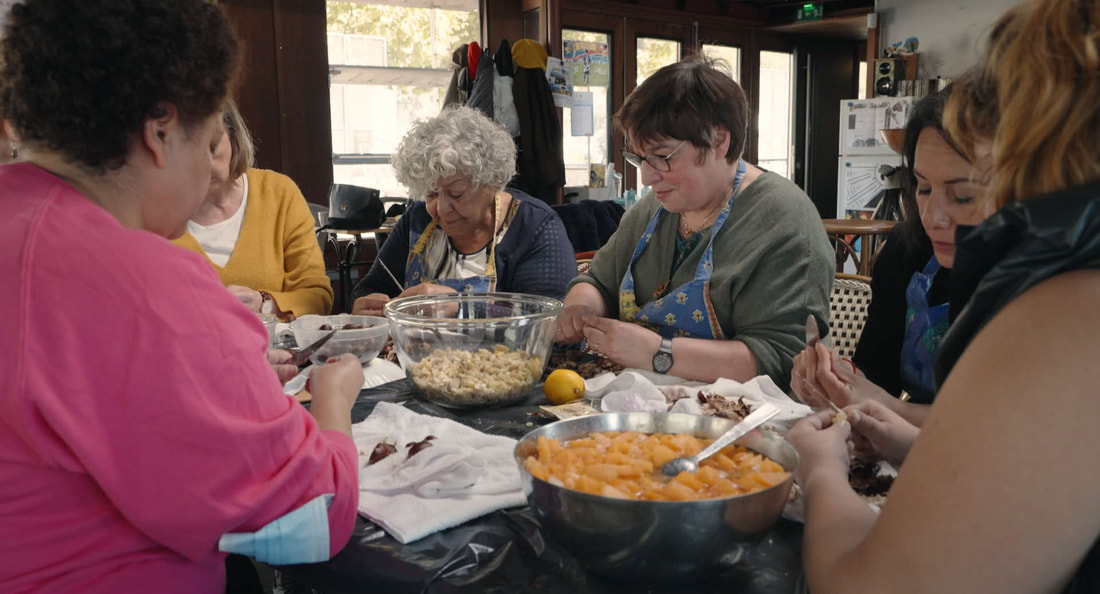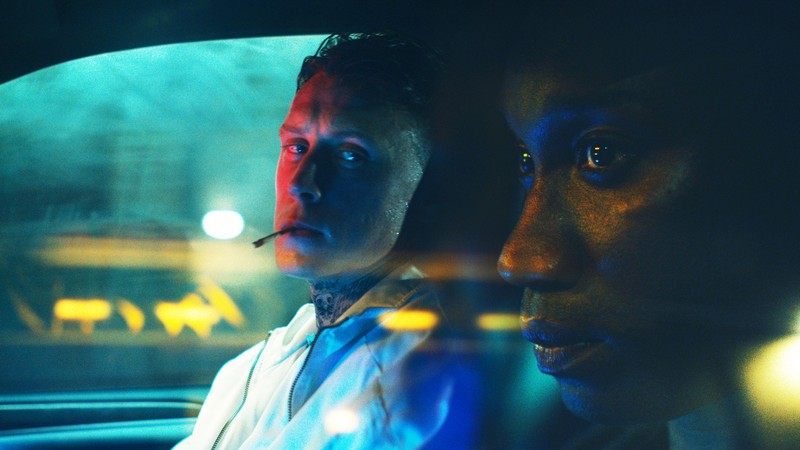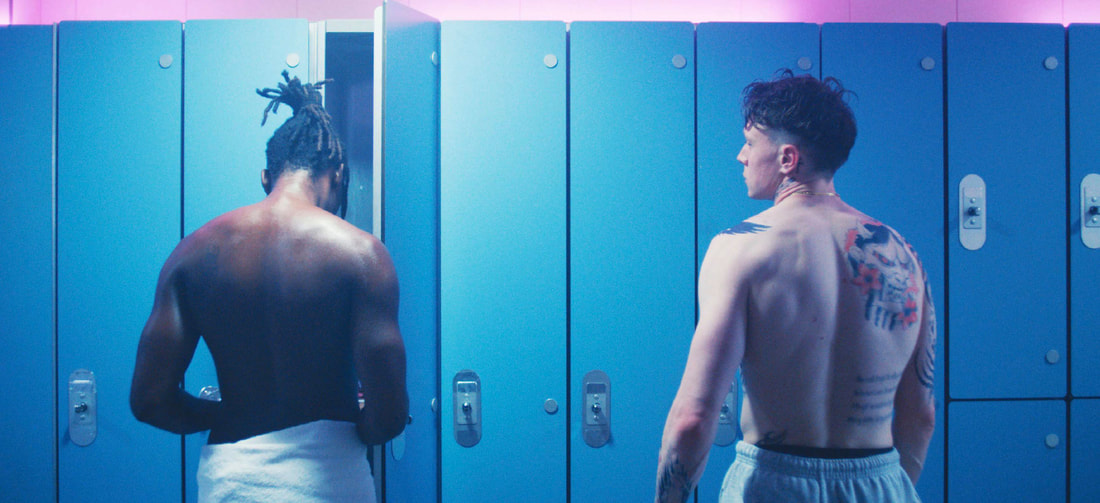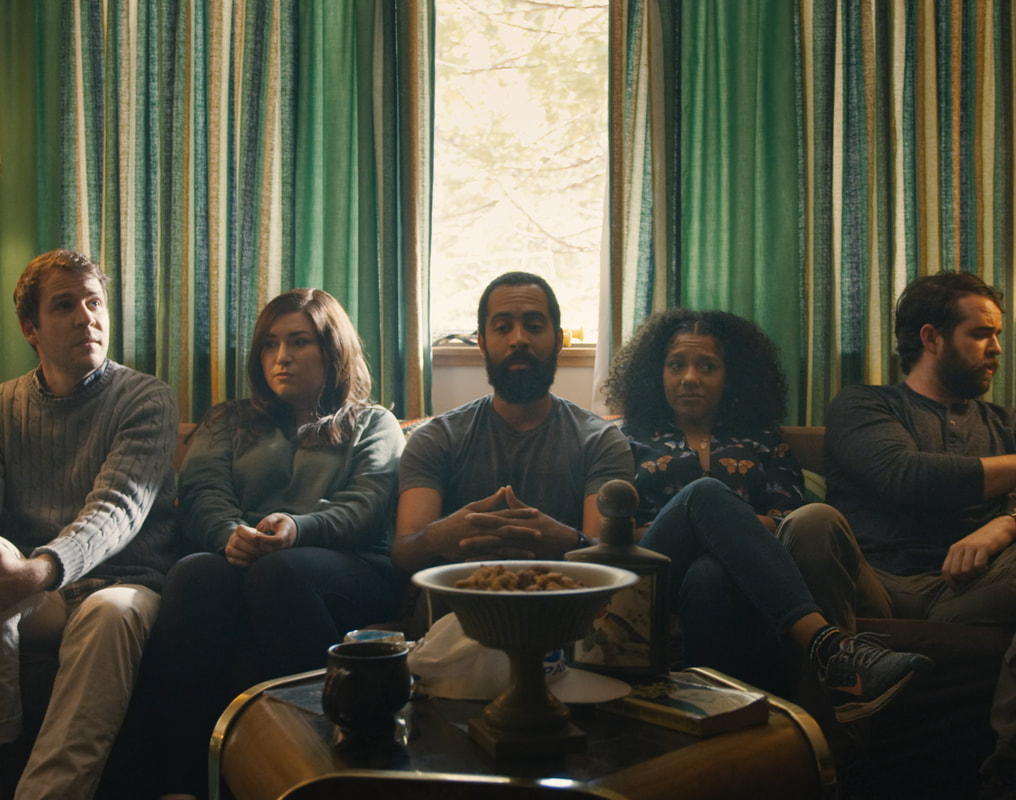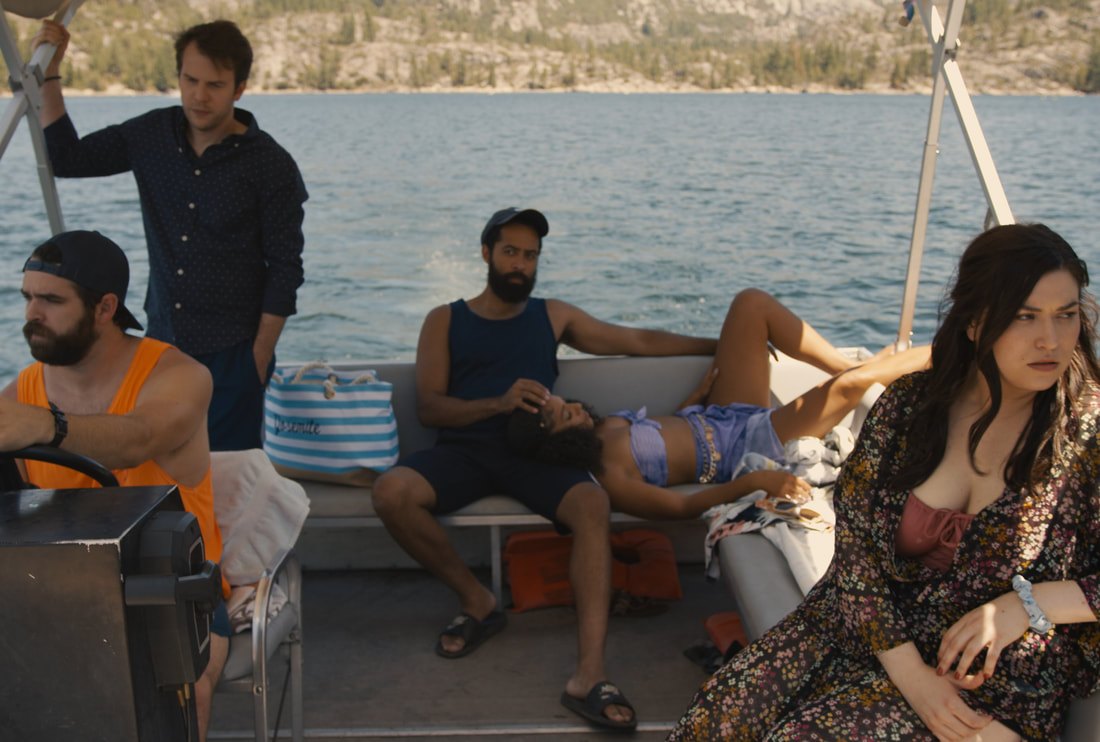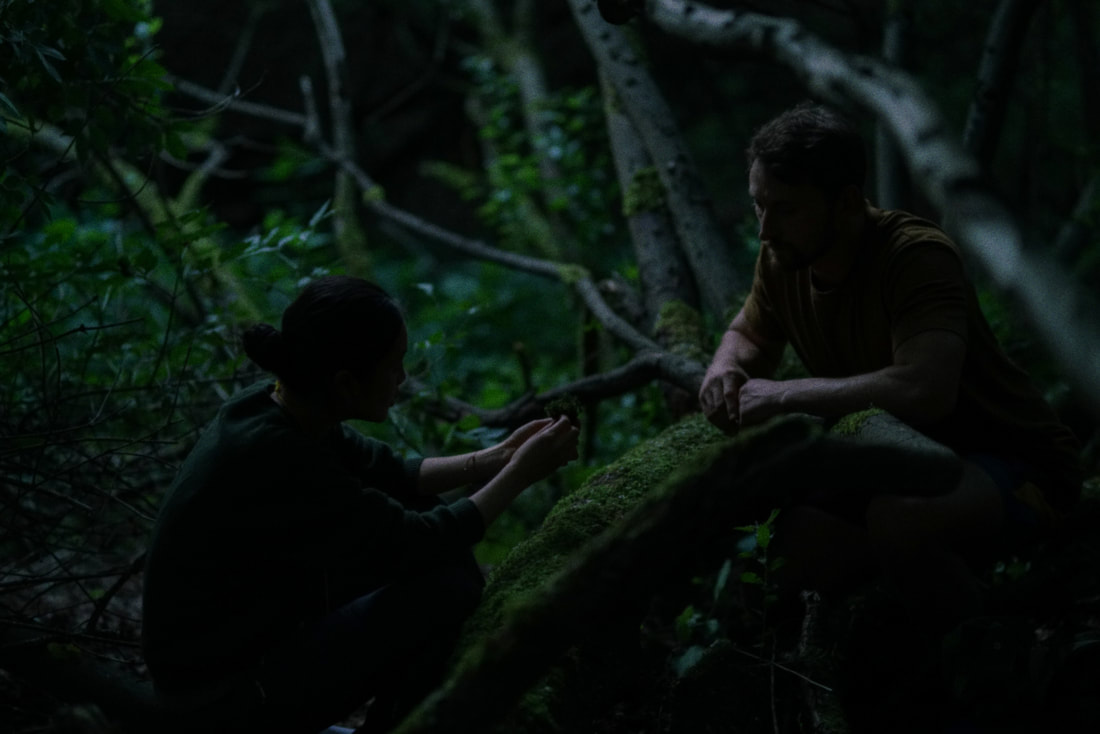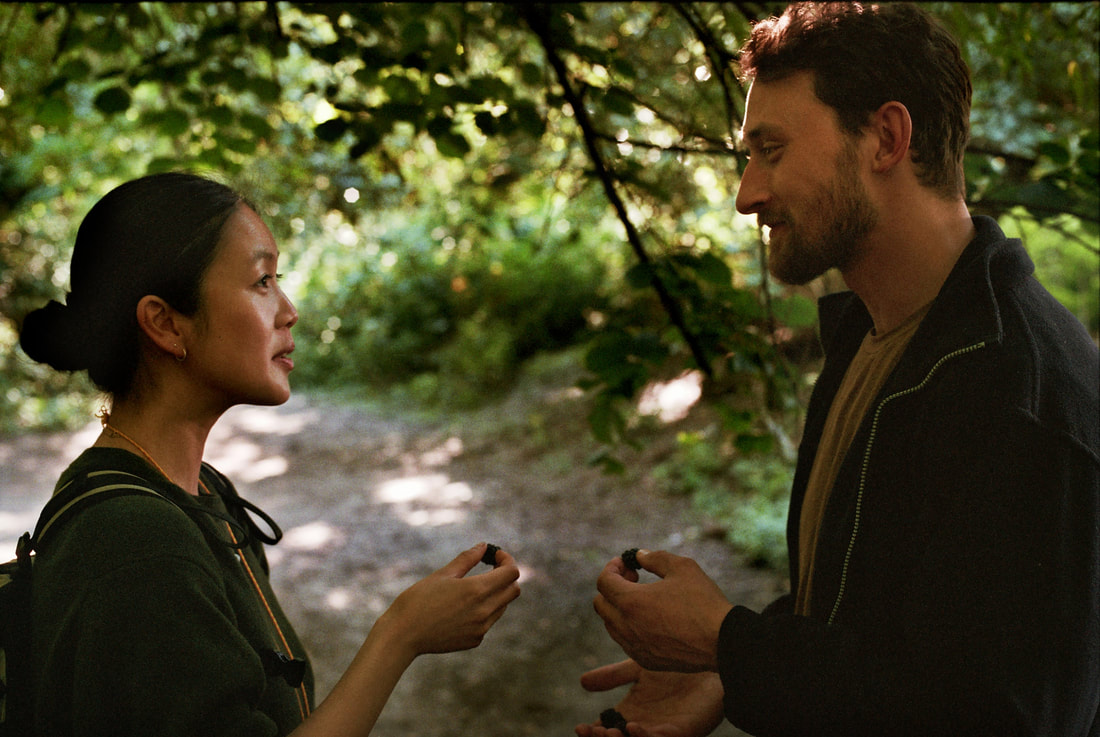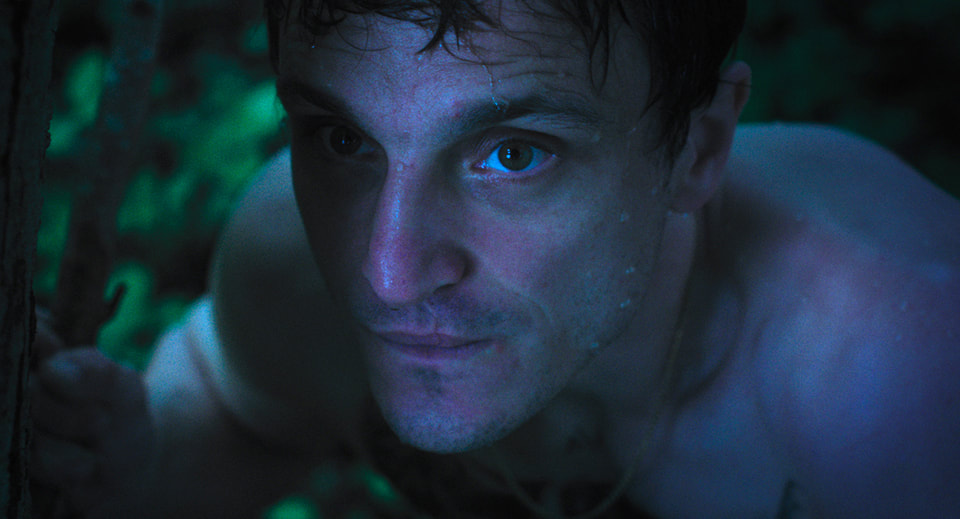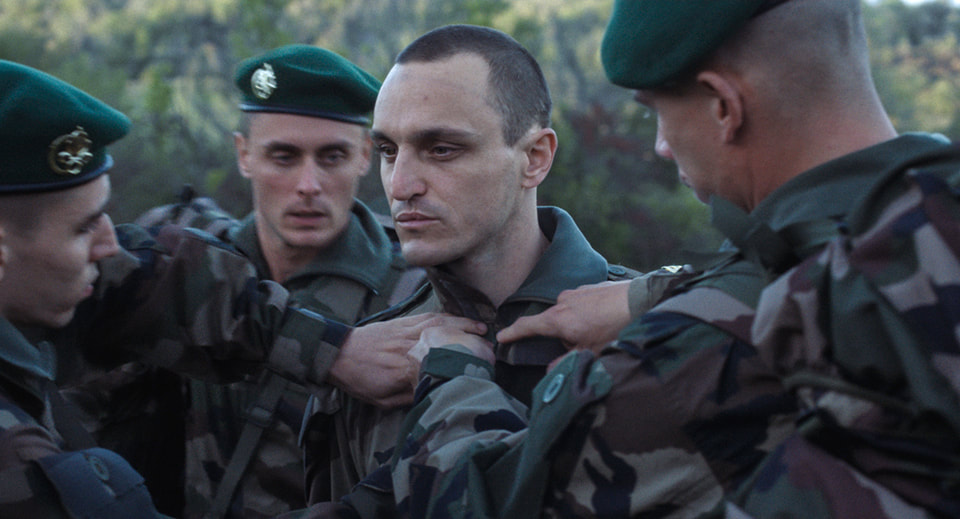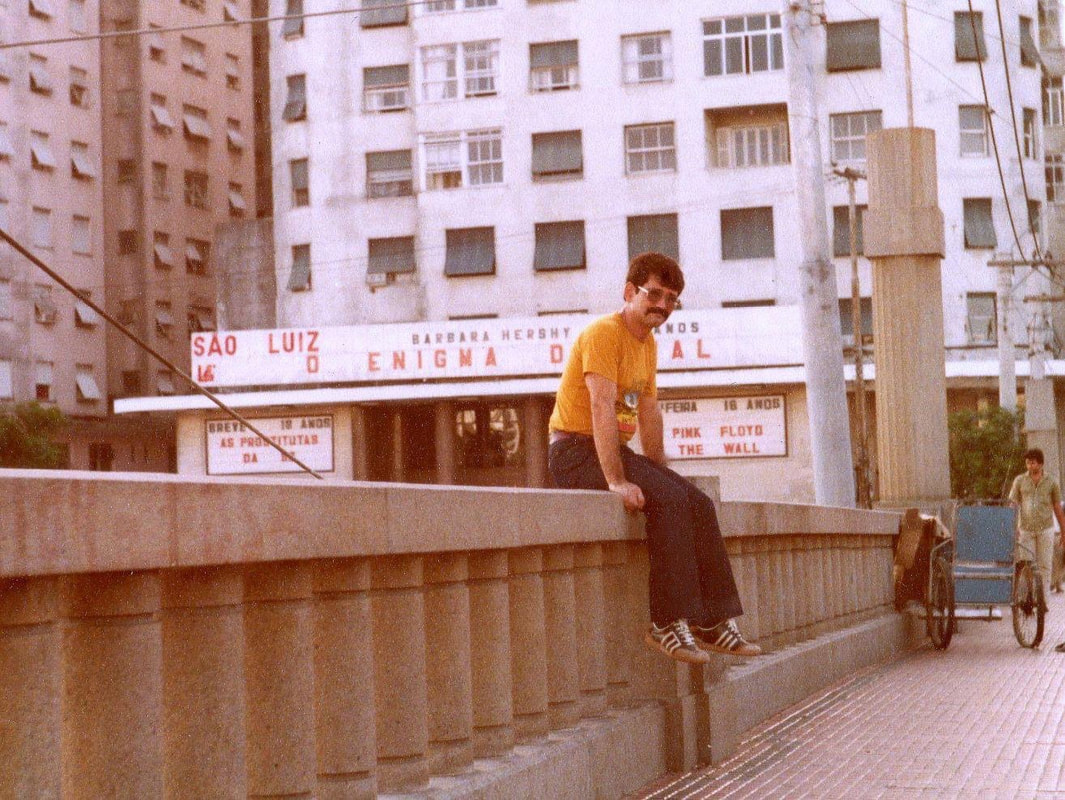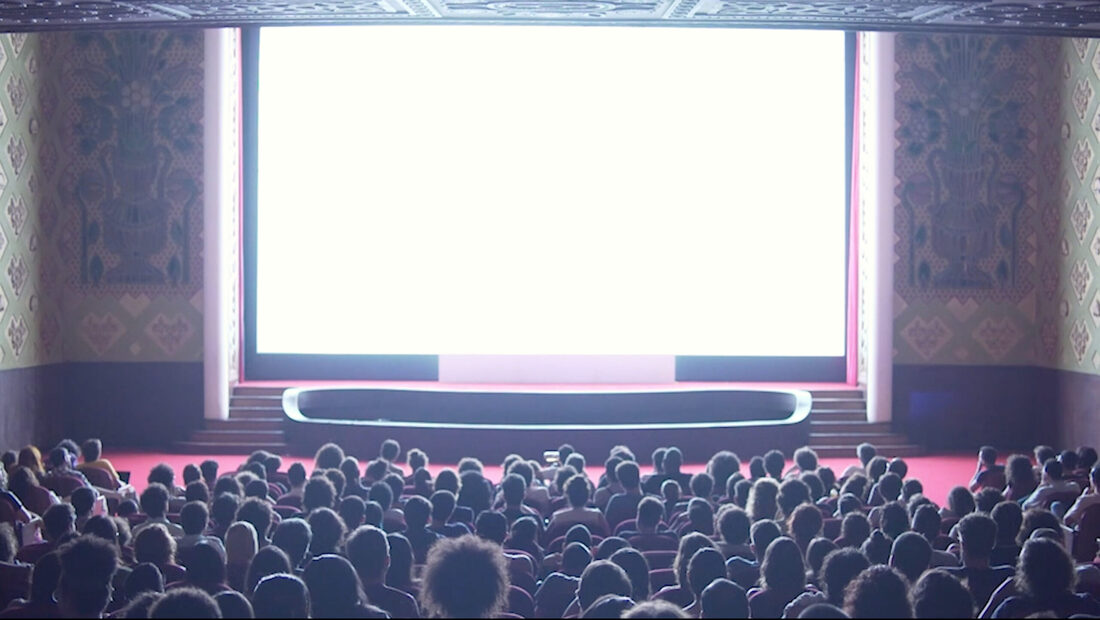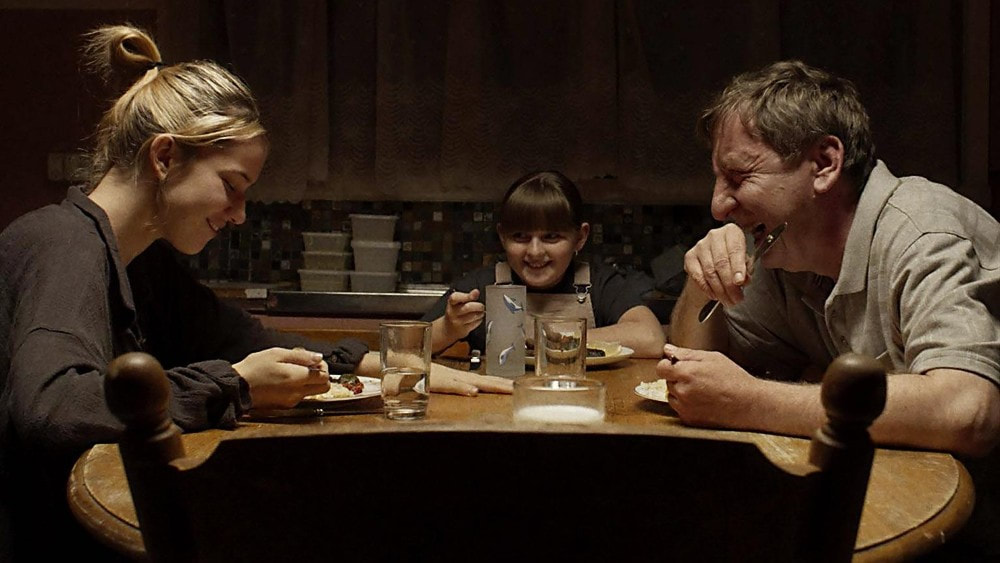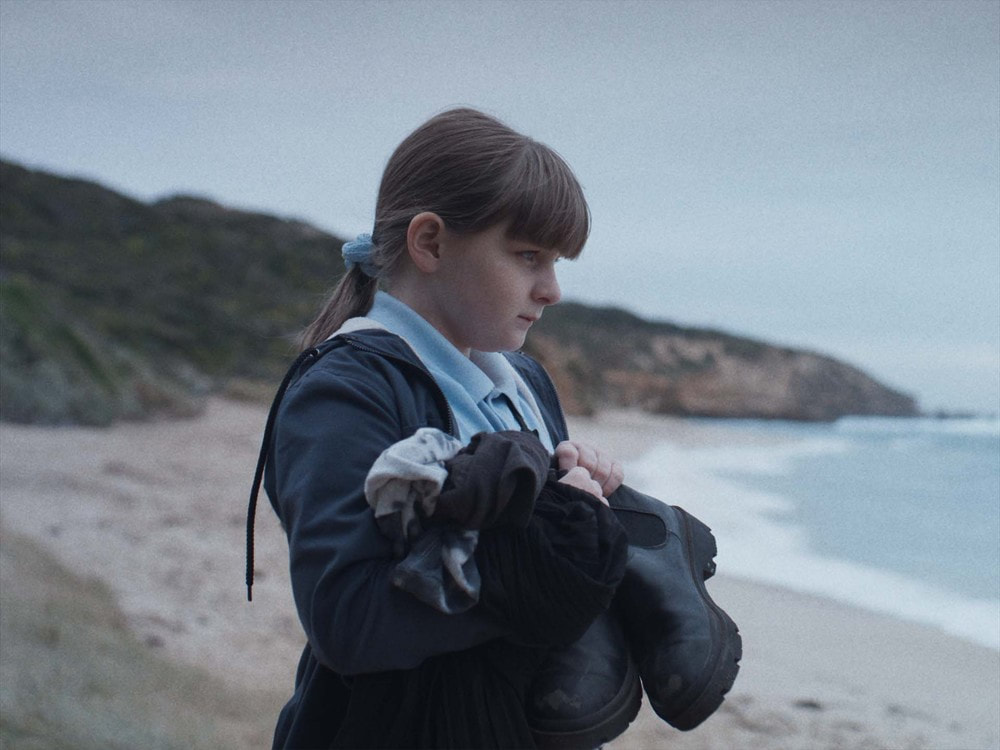|
Review by Joseph Fayed Egoist doesn't ask its audience how one should process grief, but instead how you live with it when it is all you have known. This heartbreaking Japanese queer drama puts emphasis on personal tragedies. But with its depressing themes comes a great challenge, a script that deserves to be more mellowed out, and with certain rushed plot points, it feels the opposite was happening. Mr. Kosuke (Ryohei Suzuki) is now an openly gay fashion magazine editor in Tokyo. Growing up, he lived in fear of his true identity and lost his mother, too. He meets Ryuta (Hio Miyazawa), his new personal trainer, and the two grow very close. He soon meets Ryuta's mom and feels a connection to her, just like he had with his mother. Then, one day, Mr. Kosuke receives news no one expected that puts deeper meaning on the relationships he has. One of the best things the film offers is the romance between its two leads. The strong chemistry between Suzuki and Miyazawa is present throughout. Opposites, especially in social classes, rarely attract, contrary to what popular culture has taught you. However, there is sincerity presented between the two main characters that causes sparks to fly and doesn't feel cheesy. Mr. Kosuke's sheer generosity towards Ryuta is not met with any third-party opposition. I could see how one would find this boring, but those scenes of them being cute together carry you through most of their relationship and the best parts of the film. What the film doesn't properly address is its mommy issues. Everything centered around Ryuta's mother unleashes chaos — and not the fun, campy kind. Her introduction serves as the moment when the pacing of this queer romance becomes too rushed for enjoyment. Her character as a whole feels shooed in almost. The little buildup in anticipation of her on-screen arrival contributes to this feeling. Her introduction, set over a homemade dinner, needed to happen before the end of the first act as her son's key characteristic, that he had a mom he was very close to, remained an afterthought for far too long.
Death is another topic this film has absolutely no idea to approach. It's implied Mr. Kosuke has been through hell and back in his life, so when another death occurs in the climax, we begin to see him crack. This film takes the title from most horror films for a most unexpected death. But it's unintentionally hilarious how melodramatic Ryohei Suzuki's acting becomes from this point forward. His reaction to this untimely loss doesn't feel like the cathartic release he's been waiting for. It comes across as constipation with two tears — one from each eye — for dramatic effect. Still struggling to keep up with the pace in the latter half, the grim reaper decides to make a more drawn-out departure for another character. At least this one could be blamed on illness, but Mr. Kosuke and his kiss of death illicit heartbreak one last time. Egoist is a film that is held back by grief and family. Its romance had strong promises but intertwined with plot devices that are too rushed, everything falls apart. This being a queer romance doesn't mean it's entitled to have a happy ending, but its major shift wasn't even becoming too bleak. It was just too weepy to function — a true ego death. Egoist is now in theaters. Rating: 2.5/5
0 Comments
Review by Joseph Fayed If you follow true crime, and specifically familicide, you have likely heard of Jennifer Pan. The Netflix documentary What Jennifer Did gives a summary of the brutal crime that took place and the investigation into it. Under the helm of director Jenny Popplewell, not even the horrific details alone can save this documentary from lacking any insight beyond the surface level to explain why someone like Jennifer would be driven to kill. In November 2010, Bich Ha Pan was murdered and her husband Huei Hann Pan was severely injured inside their home in Markham, Ontario, Canada. Their 24 year old daughter Jennifer was upstairs, tied up but unharmed and managed to make a frantic 911 call. As the only survivor who is able to recount what happened, Jennifer shares how three men broke in and attacked her family. But soon investigators begin to question Jennifer and her story falls through. Jennifer and three co-conspirators were later convicted of first-degree murder. This documentary follows the course of the investigation that began in the immediate aftermath of the murder. Instead of presenting Jennifer and her parents' lives and building up to the murder, this peels back certain key moments that, in hindsight, may have lead to the murder. This formatting is largely due to the heavy reliance on footage of Jennifer from police interrogation rooms. Law & Order, this is not. Not that there typically is a problem with telling a true story in chronological order, but so much of it consists of the detectives simply rehashing what Jennifer said. There's no fresh perspective given here from any of the main talking heads, which defeats the purpose of revisiting what was once a highly publicized case in the first place. One angle to the story to was massively overlooked was the allegation that the Pan's were "Tiger Parents" — a stereotype of strict parenting often associated with Asian households. Hinted at by a former friend of Jennifer's, who receives a real lack of screen time in comparison to the detectives, this was the most we learned about Jennifer's struggles with her parents. In the case being built against Jennifer, a lot of the information we learned was sidelined in favor of Jennifer's eventual confession. Three other people were convicted of the same crime, but the documentary did not treat their involvement as the same. Overall, a lot that happened outside of Jennifer's three separate interrogations by police was ignored to talk about said interrogations as if it doesn't already exist online.
B-roll footage in documentaries annoys me to no end, but this one goes overboard with it. Whether it's driving their squad car in slow motion or solemnly staring off into space, it's such a bizarre direction, and I don't understand why some directors insist on doing that. Netflix has been riding the true crime wave for a decade, but lately they've been lacking the bite they were once known for having. What Jennifer Did belongs in the hands of an actual journalist. Or at least someone who can convince witnesses, close friends/family, and legal experts on both sides to come forward and ask them questions they have yet to address. A title card at the very end reveals the four convicted will be granted a new trial in the murder of Bich Ha Pan. Of course, this documentary completely ignores that potentially life altering update, and it's a head scratching ending to say the least. As this story is ongoing, I hope whoever examines this case next gives it a more comprehensive effort. Dateline and Keith Morrison, don't let us down. What Jennifer Did streams on Netflix beginning April 10. Rating: 1/5 Review by Joseph Fayed One of the biggest news stories of 2019 was the arrest of Jeffrey Epstein for sex trafficking minors. Once his downfall became public, scrutiny grew onto his ultra-wealthy and/or famous associates who had spent a great deal of time with Epstein. One such friend was Prince Andrew. Scoop follows a team of producers who tried to get ahead of the developing story and land an exclusive interview with the Duke of York, who is unsure of how to rehabilitate his image. This biopic has many gotcha moments but gets too stuck in its format to make this dramatic retelling any more captivating. The film follows the crew of the BBC news program Newsnight, who, amidst the ongoing scandal with Jeffrey Epstein, decide to shift their focus onto Prince Andrew's ties to Epstein. Previously, their affiliation with each other had been nothing more than tabloid filler. However, upon accuser Virginia Roberts coming forward to share her story, news producer Sam McAlister (Billie Piper) and anchor Emily Maitlis (Gillian Anderson) race to be the first to get the Prince's thoughts on the allegations. In the meantime, those working for the Prince question if speaking out is really the right move for him. The characterization of Sam McAlister feels a tad bit like she is trying to Girlboss up the ranks of British television. She makes it her top priority to secure this interview, and we see her in action pursuing that, but it is very tame. Sam isn't written to be so ruthless that it's comical, like this archetype typically is. Instead, she's too reserved to have much focus on her. In what's arguably the greatest highlight of her career, she is reduced to essentially saying, "This is your reputation now, Andrew; let us know if you want to chat by Monday." It's not the mic drop moment it was intended to be, and once the interview actually takes place towards the end of the film, Sam is not much else besides background noise despite her crucial role in making it all possible. Gillian Anderson's ability to not make herself appear complacent regarding her big Prince Andrew interview is a warm welcome. For a film about a team of people working in the media, the journalist asking the tough questions is the only one less interested in the sensational elements of the story. There is a particular line of dialogue about another associate of Epstein that Emily says that I would have liked to see be explored further. Emily's reputation as a soft but hard interviewer is touched upon when she speaks to Prince Andrew and his staff beforehand. Still, in a story about abuse, it should be explained why she was perceived that way by someone who has such a high profile.
The sheer details about the accusations against Epstein don't receive too much focus here, which I could understand because it is not a story about his victims ultimately. While these allegations were not breaking news at the time of the Newsnight interview, a closer examination of how the Royal Palace would have reacted would have helped expand the story. You can't convince me that the only person around Prince Andrew regularly who is worried for him is his secretary. Not showing more of the palace in full-on crisis mode leading up to the interview was an inaccurate look at how an institution handles itself. Even seeing direct communications from Queen Elizabeth — an unseen character in this — would have better reflected the reality of the PR nightmare Prince Andrew landed himself in than what we were shown. In Scoop, we hear from the man at the center of a sensationalized story whose behavior during an interview became worldwide news. The reenactment of that interview is done very well, but those storylines behind the scenes of Newsnight and the Royal Palace go nowhere. What we are left with is that this highly anticipated expose came together like a fluff piece in a matter of days. The BBC and the Royal Palace get too much of a pass here, and it's disappointing because this was a groundbreaking moment for investigative journalism and the monarchy that was heavily underutilized. Scoop streams on Netflix beginning April 5. Rating: 2.5/5 Review by Joseph Fayed There's nothing traditional about On the Adamant simply because nothing like it has been profiled before. In this documentary, director Nicolas Philibert is granted access to a special day program, L'Adamant Day Center, for adults living with mental illness. The program's location stands out because it isn't inside any building you pass by on the street; it's a boat docked on the Seine River in Paris. The scenery around it isn't the only vibrant thing, as we see a colorful group of characters interacting with each other. It also proves how the heart and soul must be considered when discussing the mind and how to nurture it. The documentary is not very interview-heavy, which works in its favor. It refrains from focusing too heavily on the program's support staff except for moments where they require interaction with the patients, such as when going over their daily agenda. The archetypes the ensemble fits into are established early on. Examples include the artist who never quite made it, the older woman seeking affection, the single mother who lost custody of her son, etc. You can tell that during one-on-one interviews with each patient, they feel comfortable talking about themselves. Those conversations don't always feel like straightforward answers to straightforward questions. They give insight into their lives by first discussing a day in the life onboard the Adamant and then implying what brought them here and what they hope to gain. Telling the documentary in real time with its subjects humanizes those with mental illness better. The lack of focus on experts in mental health, for one, means nothing is eating away from the time we could be focusing on the actual participants in the program. Second, focusing on their diagnosis tends to lean towards addressing the negative aspects of mental illness rather than the positive. It would have been a major distraction from the uplifting moments of the group activities, so tonally, I'm glad this barely touched the surface level of mental illness because the alternative would've been exploitative. The overarching theme of this is creativity and personal freedoms being granted by an institutional force and what that entails. Most of what we see is how people can flourish under conditions that allow both structure and flexibility. One of the most fascinating parts of the documentary is of an older man who talks deeply about his love for cinema and his own close brushes with fame. His segment and the others feel intimate — even if they have vague answers to what was being asked of them. All they wanted was someone to listen to them, and the filmmakers respected that.
Passion for art doesn't need to feature one breaking the fourth wall or dropping shocking revelations. On the Adamant is meant to be an introduction into the lives of a small group of people with mental illness; it has the exact opposite approach as a documentary bringing awareness to the subject would typically have. All you need to be aware of is that people and a program like this exist, and then perhaps you should be motivated to research how these can be funded wherever you live. Vive la France and their humanistic approach towards treating mental health. On the Adamant is now in theaters. Rating: 4/5 Review by Joseph Fayed Revenge thriller Femme from directors Sam H. Freeman and Ng Choon Ping expands the idea behind their 2021 short into a feature. Addressing themes of sexuality, identity, and openness about the former, the film establishes conflicting narratives quite effectively. Two strong leading performances bring the heat to a script that prioritizes style and substance. Jules (Nathan Stewart-Jarrett) is a drag queen performing at a London nightclub. One night, outside the venue, he encounters Preston (George MacKay). The two exchange some words, which leads to Preston and his friends violently beating Jules. Months later, Jules, out of drag, encounters Preston, but he does not recognize him. The closeted Preston tries pursuing a relationship, but Jules is secretly in pursuit of something else: revenge. Jules' actions make them an anti-hero. The film's script does a good job of laying out the internal struggles both leads face in their lives. The film also lacks the use of internal monologue, a la Taxi Driver, and that decision alone gives the character of Jules more subtlety in their actions. We gradually learn more about Preston, and although he is more of an open book than Jules, his characterization makes the ending all the more worthwhile. The cinematography is exceptional. Certain moments leading up to something climatic are presented in hot pink or red, while scenes where the characters are supposed to feel isolated or alone are presented in blue. A color contrast like this is very creative and adds an extra layer of beauty to a story that is both figuratively and literally dark — in both subject matter and taking place mainly in the evening.
Nathan Stewart-Jarrett and George Mackay both drive it home with their performances. Stewart-Jarrett walks the fine line between authenticity and a persona he is putting on, and I don't mean his drag act. MacKay portrays his character as both short-tempered and with convincing cognitive dissonance. Directors Freeman and Ng pose the question of whether identity could ever be tainted if it is stripped away from us. They give their perspective answer on that and do not make the film feel like it has been dragged out beyond the opening act. The chemistry between Nathan and George is strong and their scenes together feel genuine whether they are acting as friend or foe. Femme builds its suspense in all the right places. It is both stylish and sexy and has the bark and bite to show you how complex revenge can be. The fluidity of these characters and how they become intertwined is so well done, and I hope that now that all eyes are on them, this is just the first of many more collaborations between the filmmakers. Femme is now playing in theaters. Rating: 5/5 Review by Joseph Fayed Do filmmakers often go to remote cabins to look for inspiration and clear their minds to write their next acclaimed project? Well, maybe after watching the cliche-ridden Stranger In The Woods, more of them will avoid rural areas altogether. The Newacheck Brothers missed this memo and must have the most bland friend group imaginable if this is who they think a weekend getaway consists of. After nearly dying following a suicide attempt, Olivia's friends try to lighten up the mood by taking her to a cabin in the woods for a few days. Olivia is adamant something awful happened to her, but she and her friends try to ignore it until an unexplained disappearance creates tension amongst the group. A dream vacation quickly becomes a nightmare, and Olivia begins to unravel, unsure who to trust. This psychological thriller comes with no exciting twists or turns. Plot twists aren't always needed, but suspense sure is. From the opening scene, which features what appears to be the first ChatGPT-written "suicide" note, tension is quite thick among the characters. Due to obvious circumstances, one would expect very few lighthearted moments, which is confirmed upon the introduction of an estranged half-brother to one of the friends, Clayton, who lives in the cabin next door. The script goes unnecessarily above and beyond to make Clayton a creep who lacks social awareness. So much of this occurs that you feel that Clayton has to be a red herring in the storyline somehow. There is one line from Clayton involving his and Olivia's past that, if approached more carefully than painting him to be a creep from the start, would actually give the plot something to focus on. Part of the ensemble is just there to repeat lines. They are disregarded because they are not Olivia or the creep or Olivia's dog — yes, Olivia's dog draws more emotional significance than two humans bring to this. The dog at least gives Olivia something else to worry about besides the lingering aftermath of her near-death experience. Minus the dog, the acting is pretty stale. Olivia is characterized as having this dark cloud over her, and only briefly do we see it heightened. The script makes it seem like Olivia is the woman who has gone from 0 to 10 and is on wit's end when, in reality, she comes across as confused and broken. Had she been starring alongside actors who can actually act like they are her friends, then maybe a dog's performance wouldn't be the frontrunner for awards this film will never receive.
Stranger In The Woods is a misleading title because nobody in the film is meant to be a complete stranger to the rest of the group. That minor gripe aside, you can rewatch many thrillers in a remote setting that are engaging because they are original or well-acted, unlike this. The only redeeming factor this film will have is its less upsetting entry on doesthedogdie.com. Stranger in the Woods is now in theaters and on VOD. Rating: 1/5 Review by Joseph Fayed Relatability can truly make for compelling comfort cinema. We often emote the same way we see "ordinary" people on screen do so. Here follows two people with ordinary lives who, like many people, make it through their daily struggles while seeking a greater purpose. Unfortunately, any realism felt from this rather mundane story won't elicit much of a reaction from viewers. The film follows Stefan, a construction worker living in Brussels. He plans to leave for an extended period and decides to make soup using ingredients from his fridge before he goes. Giving it out to friends and family, he meets Shuxiu, a doctoral student studying moss. Stefan's kind gesture takes on a new meaning, bringing him closer to Shuxiu than they expected. Whether they're depicted as the start of a flaming romance or a lifelong friendship, and the script can be interpreted as both, the characterization of Stefan and Shuxiu I can equate to nothing more than Wonder Bread. Their chemistry with each other is dry enough that small talk with a complete stranger would feel less awkward. It's simply not believable enough that these two would cross paths unless a life-altering event involving both of them would occur. The script does manage to keep everything light-hearted. It forgoes having our two main characters interact until the film's second half. This is likely to establish who Stefan and Shuxiu are, but neither is written to be compelling enough to be more than supporting characters. Shuxiu's introduction, the most beautiful part of the film, feels devastatingly out of place with a voiceover and various shots of nature. With a better setup, this moment would be more than just a wasted soliloquy.
Stefan Gota (Stefan) and Liyo Gong (Shuxiu) were not miscast; they simply weren't meant to be paired together like they were. Gota is passable in his role, even if he doesn't bring the same type of quirkiness to his character, a la Amelie. Gong has the delivery that would serve her well in other indie dramas, and if she can make moss sound slightly interesting, I have a lot of faith in her going forward. The most praise goes to the cinematography, which captures a beautiful look at Brussels and its surroundings. Any outdoor shots make the green scenery look stunning, and I was certainly in awe of that color palette versus anything else on the screen. Here won't capture your undivided attention, but its premise is relatively harmless at best. While it seems like there was a mismatch between the two leads during chemistry screenings, this is suitable if you want to turn your brain off for 80 minutes. Moss girlies, rise up; Here is the representation you have all been waiting for. Here is now playing in theaters. Rating: 2.5/5 Review by Joseph Fayed Franz Rogowski has been on an impressive run over the last few years. He has consistently been the standout performer in films from acclaimed directors. In Giacomo Abbruzzese's directorial debut, Disco Boy, Rogowski gives another memorable and nuanced performance despite a mildly confusing script holding this film back. Aleksei is a Belarusian man escaping his past. Out of desperation and having nothing to lose, he joins the French Foreign Legion to gain French citizenship. In the Niger Delta, Jomo is a guerrilla fighter defending his community. The two cross paths, and their fates intertwine in a way that war could never anticipate. The two storylines are established quite well. The one featuring Aleksei naturally takes up more screen time due to the various shifts in location, but Jomo's narrative is built more slowly. Unlike most war dramas, the central theme here is not depravity but isolation. Abbruzzese bold choice gives these characters the humanity they were supposed to be born with. None of that is stripped away during an act of violence. Aleksei and Jomo's characterization is not what feels fractured in the film's second half. That being said, the last act is where the plot reaches a rushed conclusion. Since the final act isn't based around bloodshed, one may think there is no need for resolution beyond what is presented at the surface level. The ending, in particular, is off-putting only because it does not present a new reality for our protagonists, and it more so has them do something in the vein of escapism. It does not feel like a change in tone that is warranted, but instead, it will have you feeling like you were psyched out until the end credits start rolling.
Franz Rogowski is as wonderful as he always is. His best moments come when he has little to no dialogue and has a look of remorse. It's all in the eyes of people; they say a thousand words. Rogowski makes Aleksei's uncomfortable situation watchable with the emotional wherewithal. Morr Ndiaye is alluring as Jomo and shows he has a promising acting career ahead of him. Neither Rogowski nor Ndiaye were subjected to relying on war film tropes like the stereotypical soldier fighting in a war breakdown moment; both were compelling without having to do something like that. In Disco Boy, Giacomo Abbruzzese prioritizes protagonists over the politics of war. To some extent, it works because Abbruzzese proves that fighting in a war requires emotional, physical, and mental tactics, and your removal from that is a blend of all three. Impressive performances keep this film from becoming a chore to watch, even if the pacing becomes sloppy later on. Its message about disparity comes across well and never loses focus, and it's a poignant look at two very different men. Disco Boy is now in theaters. Rating: 3.5/5 Review by Joseph Fayed One can not reflect on the cultural landscape of society shifting over time without discussing the personal impact it has had on them. In the documentary Pictures of Ghosts, filmmaker Kleber Mendonca Filho tells the story of past and present-day Recife, Brazil. But in what is meant to be a love letter to his hometown, there is rich history but not much to expand on. Throughout his life, Kleber Mendonca Filho has always had an innate passion for film, which he began growing up in a small neighborhood in Recife. Recife has always been at the heart of Filho's filmography through home video spanning decades; the director shares why that is the case. Recife is treated as the main focus of this documentary. However, its evolution does not feel like it is being explained in a practical manner. Recife's rich history feels stuck in the past, meaning there is little context or insight to describe the neighborhood outside of explaining its current structures. Someone unfamiliar with this landscape won't learn much about the present and how Recife has evolved, contributing any major change to essentially nothing. The shining moments are the characters we are introduced to in the past and near present. With how blunt the film can feel with how it expresses its message, archive footage of people like the cinema projectionist on the job does make this film relatable to an extent. Each one's experiences with Filho are recounted before it mentions how they, too, feel like they have been lost to time.
The cinematography is simple and makes some wise choices. Shots of the apartment the director lived in for many years feel intimate and not like a walk-through tour. Anything taking place outside relies on wide shots usually from above street view. A particular sequence is a long shot that captures Recife's Carnival at night. It lasts about two minutes and is the sole indicator of something that has been carried over from the past. The shot does feel out of place compared to the rest of the film but it helps link together the past and the present more than the rest of the narrative does. Ultimately, Pictures of Ghosts are old memories with nothing new to say. Any architecture that is no more becomes an afterthought narratively speaking. One must wonder why Filho, who seems so appreciative of the past, didn't use all of the footage he had shot decades ago and just structured his film to reflect on that time period instead of an attempt to flip back and forth. Filho's own narration sounds like it's obligatory when it doesn't revolve around himself or his family/friends either. Recife is at the heart of many of his films, so it is upsetting that such an integral part of the story doesn't have the anthropological vision it needs. Pictures of Ghosts is now playing in theaters. Rating: 2.5/5 Review by Joseph Fayed Over the years, many early-career directors have made family dramas heavily focusing on the family's youngest member. They tell the story of hardships while treading lightly with melancholy. Making her impressive directorial debut, Sara Kern's Moja & Vesna is the latest to add to this trend. Ten-year-old Moja lives with her father and her pregnant 20-year-old sister in the suburbs of Melbourne, Australia. The family is still grieving the unexpected loss of their matriarch, while Moja is seemingly the only one who anticipates the arrival of her niece. Feeling that Vesna can fill the gap their mother left behind, Moja looks forward to a brighter future. The film's point of view doesn't come directly from Moja — the most interesting of the three — and it pays off. Moja still serves as the protagonist, but viewers are allowed to make assumptions about her family that a 10-year-old simply can't comprehend. Moja has the quirks any kid her age would have, but one distinction is that she can process her feelings like an adult can, too. The script sees Moja have a blend of both child-like and adult personalities, but a consistent trait she has is being mellowed out. Her emotional maturity is well written as her actions speak louder than words and prove Moja is much more stable than she may realize. It is hard to describe Vesna other than she is someone who, whenever she opens her mouth, you expect her to yell. Thankfully, she does very little of that. Vesna is truly broken on the inside, and she is the most emotionally driven. Her pregnancy serves as another misstep to her; positive encouragement shows a glimmer of what she could be like as a mother, but it is clear why she is not ready to handle that role. Loti Kovacic and Mackenzie Mazur have great chemistry as Moja and Vesna, and the latter's performance is elevated when she acts opposite her sister Moja, who becomes more of an adult than Vesna is.
The supporting characters are well-acted, too. Moja and Vesna's father, Milos, wears his grief over his wife's death on his sleeve. Moja's friend Danger is the carefree spirit she craves the most, and Danger's mother — the biggest outsider to the rest of the characters — wants to help Moja but just can't put herself in Moja's shoes soon enough to make a difference. These three and their storylines represent parts of her life that Moja is willing to embrace, even if Vesna becomes increasingly distant from her family. Moja & Vesna will make you want a supportive sister if you don't already have one. It is raw and candid in how a child is supposed to deal with loss, as it should be. This take on how grim the present is for a girl and how she vows to have a bright future not only for herself but those surrounding her is as fascinating as any childhood fairytale. Do yourself a favor and give this film the nice warm embrace it deserves instead of giving it the cold shoulder. Moja & Vesna is now streaming on IndiePix Unlimited. Rating: 5/5 |
Archives
April 2024
Authors
All
|
|
|
disappointment media
Dedicated to unique and diverse perspectives on cinema! |

